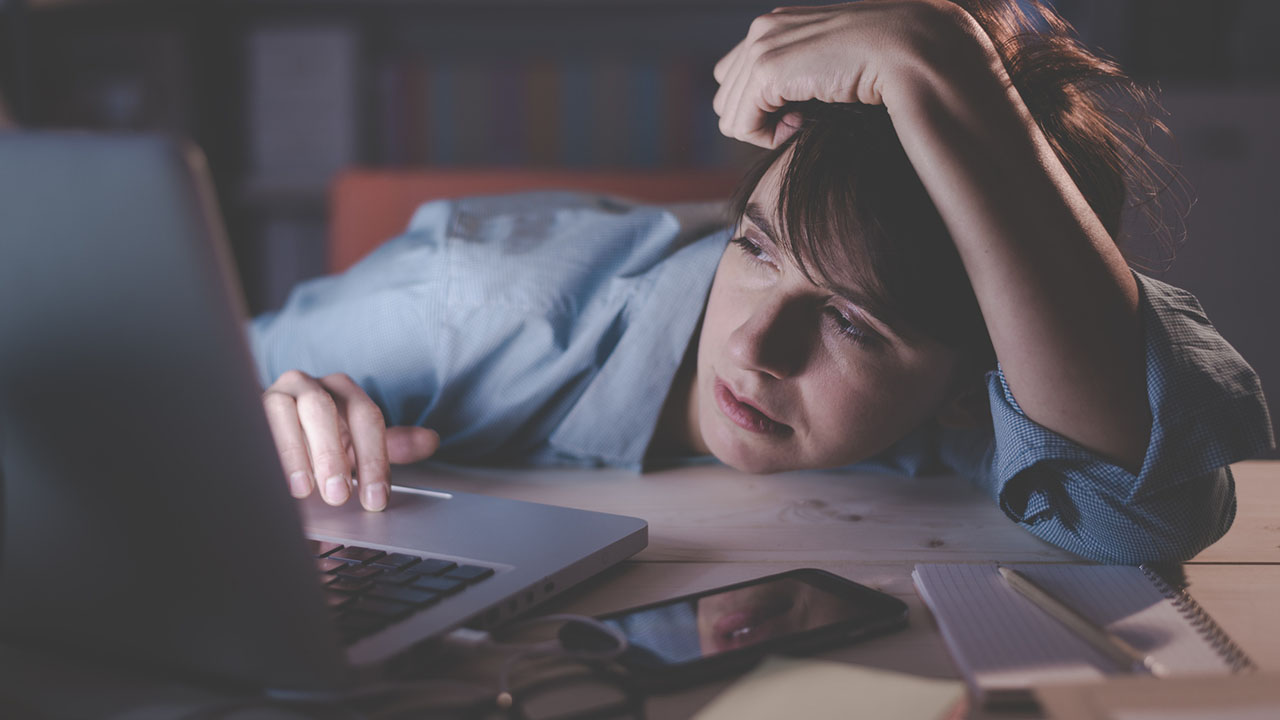 stokkete/fotolia
stokkete/fotolia
Hot flashes, anxiety, sweating, dizziness, and nausea are just a few of the symptoms that a woman in early menopause may have to battle during her day. When nighttime rolls around, it may seem like sleep can’t come soon enough. Unfortunately, it may be out of reach. While sleep is normally the body’s way of recharging and resetting for the next day, menopausal insomnia can often rob a woman of that option. She tosses and turns, sweats and sighs. Is there any relief, even after the sun goes down?
According to the National Sleep Foundation, approximately 61 percent of menopausal women have sleep problems. Insomnia is one of the most complex issues during the time leading up to and during menopause because it creates a loop of sorts with other symptoms. The same symptoms (hot flashes, anxiety, night sweats, mood swings, and headache) that cause insomnia then become even worse because no rest was found the night before. It’s the classic tale of “I don’t feel well because I can’t sleep, and I can’t sleep because I don’t feel well.”
What Causes Menopausal Insomnia?
Hormonal Changes: From the very beginning of early menopause and following through after full menopause, a woman’s body both fluctuates and decreases the production of estrogen and progesterone. Both of these hormones help promote sleep. When their amounts start to change and dissipate, so does the body’s natural ability to fall asleep.
In addition, as sleep-inducing hormones are in low supply, the stress hormone cortisol can reach higher levels. Cortisol is an effective chemical for preserving and protecting the body during times of stress. When it is out of balance, it can create problems with your nervous system that interfere with REM sleep, the sleep phase needed for the body to be truly restored. It also interrupts sleep rhythms, which may be why some women can’t fall asleep at all while others can fall asleep but not stay asleep for an extended time. In the worst scenarios, overproduction of cortisol can cause a high heart rate, racing thoughts, palpitations, and even panic attacks.
Hot Flashes: A hot flash acts similarly to a rise in cortisol in that it creates the same “wired but tired” feeling. Blood, rushing to the surface of the skin, wakes your brain and causes an increase in heart rate. Simultaneously, or soon after, your body breaks out in a thin layer of sweat – further increasing your discomfort. The accompanying adrenaline rush can often take much longer to fade than the hot flash itself, leaving you wide-awake for some time.
Depression and Mood Swings: Bedtime is often when feelings of sadness, anxiety, or anger become even stronger. In the quiet of bed, thoughts begin to race and worries surface because your mind isn’t being stimulated by outside sources.
Other menopause symptoms that can act as sleep deterrents may include headaches, irregular menstruation and/or cramping, and night sweats.
How To Improve Your Chances of Getting Sleep
Start With Your Surroundings: Make sure your bedroom is appropriate for sleep. The room should be dark, quiet, and an appropriate temperature for your body. Avoid television directly before bed or while lying in bed. Try using dim lights while you prepare for bed to get your mind and body in the mood for sleep.
Skip Hot Flash Triggers a Few Hours Before Bed: Avoid hot flash triggers such as alcoholic beverages, caffeine, tobacco, and spicy foods.
Improve Cortisol Levels: Thirty minutes of exercise daily is an effective manner of reducing stress that naturally lowers cortisol.
Prepare Your Body for Rest: Instead of jumping right into bed, set aside some time to calm your mind and body first. Try soothing music, breathing techniques, yoga positions, or just sitting in silence while sipping a calming, cool beverage like iced green tea or flavored water.
Pick a Schedule: Even under the best conditions, your body likes to know when it can sleep and when it can’t. Attempting to force your body into sleep at random times during the week will only add to your insomnia frustration. Try to begin your bedtime ritual at that same time each night so that your body gets into a better rhythm.
Keep Cooling Items Close At Hand: Keep a chilled water bottle or even a bowl of ice and soft cloth on your nightstand so that you can get relief when a hot flash wakes you during the night. If you often suffer from night sweats, keep a clean pillowcase and sheet within reach so that you can change to fresh linens when needed without having to venture far from your bed.
Reviewed March 24, 2016
By Michele Blacksberg RN
Menopause and Insomnia. National Sleep Foundation. Retrieved March 17, 2016. https://sleepfoundation.org/ask-the-expert/menopause-and-insomnia
The Role of Cortisol in Chronic Insomnia in Perimenopause. Healthline. Retrieved March 17, 2016. http://www.healthline.com/health-blogs/hold-that-pause/cortisol-chronic-insomnia
7 Tips to Sleep Better With Menopause. Everyday Health. Retrieved March 17, 2016. http://www.everydayhealth.com/menopause-pictures/tips-to-sleep-better-with-menopause.aspx
Sleep And Menopause. WebMD. Retrieved March 17, 2016. http://www.webmd.com/menopause/guide/sleep-disorders-sleep-menopause




